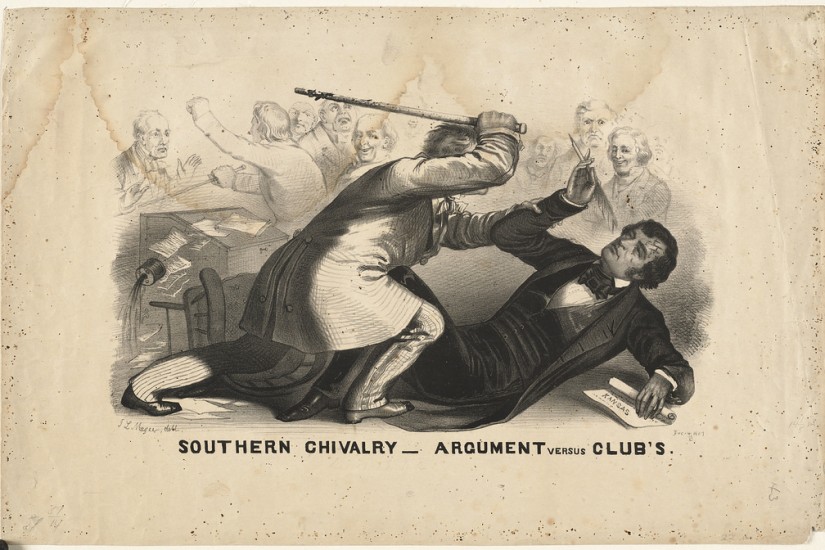* * *
On May 25, witnesses say, Greg Gianforte, the Republican candidate in the special election for the seat vacated by Secretary of the Interior Ryan Zinke, grabbed the Guardian reporter Ben Jacobs by his neck and slammed him to the ground. Jacobs was attempting to ask Gianforte about his position on the American Health Care Act, a bill that the Congressional Budget Office estimates would lead to some 23 million fewer people having health insurance. Gianforte defeated his Democratic opponent Rob Quist Thursday evening without ever taking a clear public position on the bill, which is deeply unpopular.
Gianforte attacked a man professionally obligated not to fight back. He initially accused Jacobs of being the aggressor and justified the assault by describing him as a “liberal reporter.” He hid from reporters all through election day, and as Brian Beutler points out, apologized only after he had won the seat.
While the reactions of Gianforte’s Republican colleagues in Congress ranged from condemnation to justification and even humor, many voices in the conservative media eagerly defended the assault (though there were notable exceptions). Pundits on Fox News explained that the California-born, Pennsylvania-raised Gianforte had merely given Jacobs a taste of “Montana justice.” Geraldo Rivera, of Brooklyn, New York, explained that Montanans “are no strangers to the more robust way of living.” The conservative pundit Laura Ingraham, who hails from the mean streets of Glastonbury, Connecticut, asked, “What would most Montana men do if ‘body slammed’ for no reason by another man?”
Physically attacking journalists for asking questions is cowardly. Every single person who defends it is engaging in an act of cowardice. The notion that Gianforte was merely channeling the rugged frontier culture of Western mountain men when he attacked someone who asked him a question is laughable and patronizing.
It is not 1856, but these are the politics of a false valor forged by fear. It is the undercurrent of a politics that defends grown men who stalk black teenagers in the night and then gun them down when they raise their hands in their own defense; it is the politics that rationalizes Ohio police shooting a 12-year-old boy with a toy gun without so much as a chance to surrender; it is the politics of mass deportation and Muslim bans and Blue Lives Matter bills. It is the political logic of frightened people who need to tell themselves they are brave. This is not valor; it is the celebration of violence against those who cannot respond in kind.
